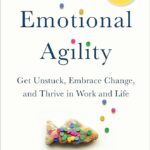At the Executive Roundtable, we are flag waving champions around the importance of building and maintaining your personal and professional network. In work, your network will be one of the most crucial tools you’ll ever “own”. Recently, we had Charles Brown from the Source talk about the importance of having a small, tight network as a way to ensure job-option longevity. In my experience, meeting people and engaging them in your network is the easy part… the hard part is the maintenance. Recently, I was reminded of how NOT to maintain a network effectively and have coined a new phrase to describe it: net-leeching!
A few weeks ago, I received a forwarded email from a colleague from someone in our mutual network who is currently looking for work. This is a pretty standard use of a network but, in this case, the response from my colleague and myself was pure annoyance. We both essentially rolled our eyes and promptly deleted the request for support (admittedly after a slightly highschool back and forth exchange about how annoying the request was in the first place). Why this harsh reaction you ask? Well here’s the story: this person had literally bled their network goodwill dry through a series of consistent miss-steps.
Here’s how they went from a “networker” to a “net-leecher” and what you should avoid so that you don’t get labelled a goodwill blood sucker:
- No value-add… every “stay in touch” email received from this individual contained updates on their career progress with no interesting information for the reader (other than hearing, once again, how fabulous this individual is);
- No reciprocity… after the pitch (“keep me in mind for new roles”) the email ended with a bland “would love to hear what’s new with you” which would then get zero response when you did send a follow-up (obviously leading one to question the sincerity of the sender);
- No WIIFY… Tim Cork, author of Tapping the Iceberg, uses the term “net-giving” to describe how effective networking is really a give and take. The key to building strong networks is to focus on how you can help the other person (vs. what they should be doing for you). Needless to say, on top of not really caring how the recipient was doing, our “net-leecher” never bothered to ask what they could do to help either.
- TMI… not that kind of “too much information” but hearing a regular annual or bi-annual update from someone who is gainfully employed asking to be kept in mind for other job opportunities actually has the opposite effect. Our network strength is based on the strength of our recommendations. Do you really want to recommend someone who always seems to have their eye out the door for another opportunity? Probably not.
By definition, a leech is someone who benefits from someone else’s information, but doesn’t offer anything in return. Don’t be a net-leech. Your network requires a continuous investment of your time and attention. Remember JFK’s historic speech and “ask not what your network can do for you, but what you can do for your network”. When you really need the help you’ll want people to be anxious to reach out, not exchanging snarky emails behind your back and adding your name to the top of the list of people they DON’T want to help.
And, p.s. …if you meet with me while you’re “unemployed” and looking for work and then neglect to keep in touch when you’ve landed something (especially if I’ve made the job intro for you), please don’t come and knock on my door again for another coffee talk next time you need a job. Just saying.
Happy leading!



